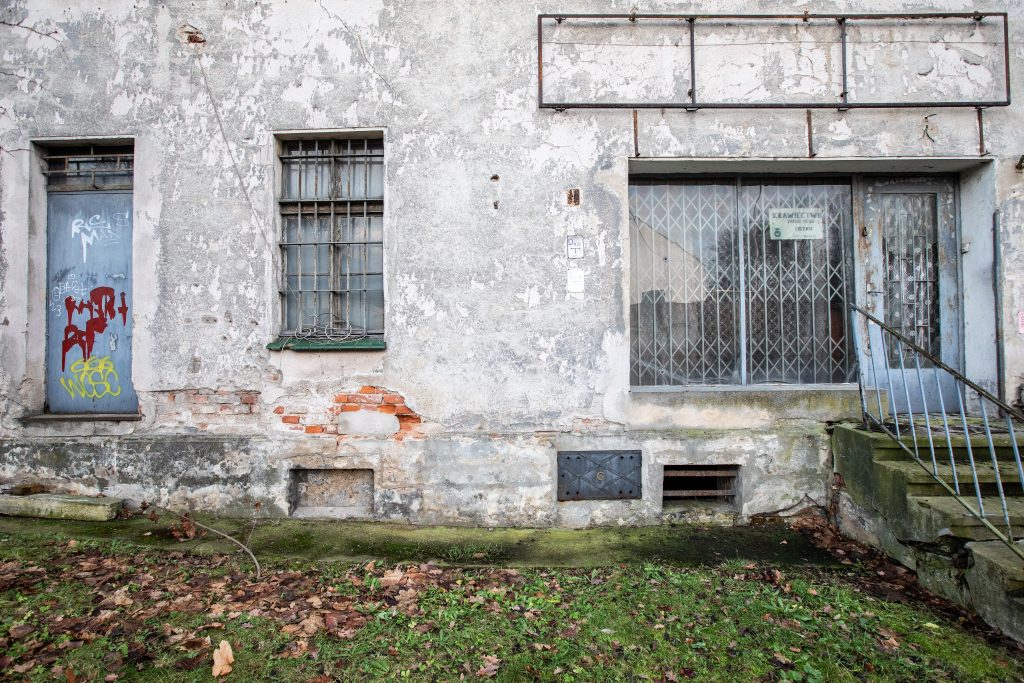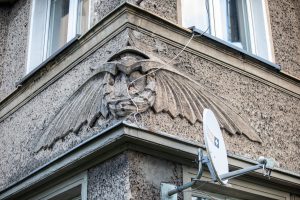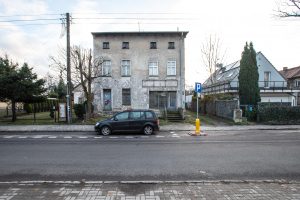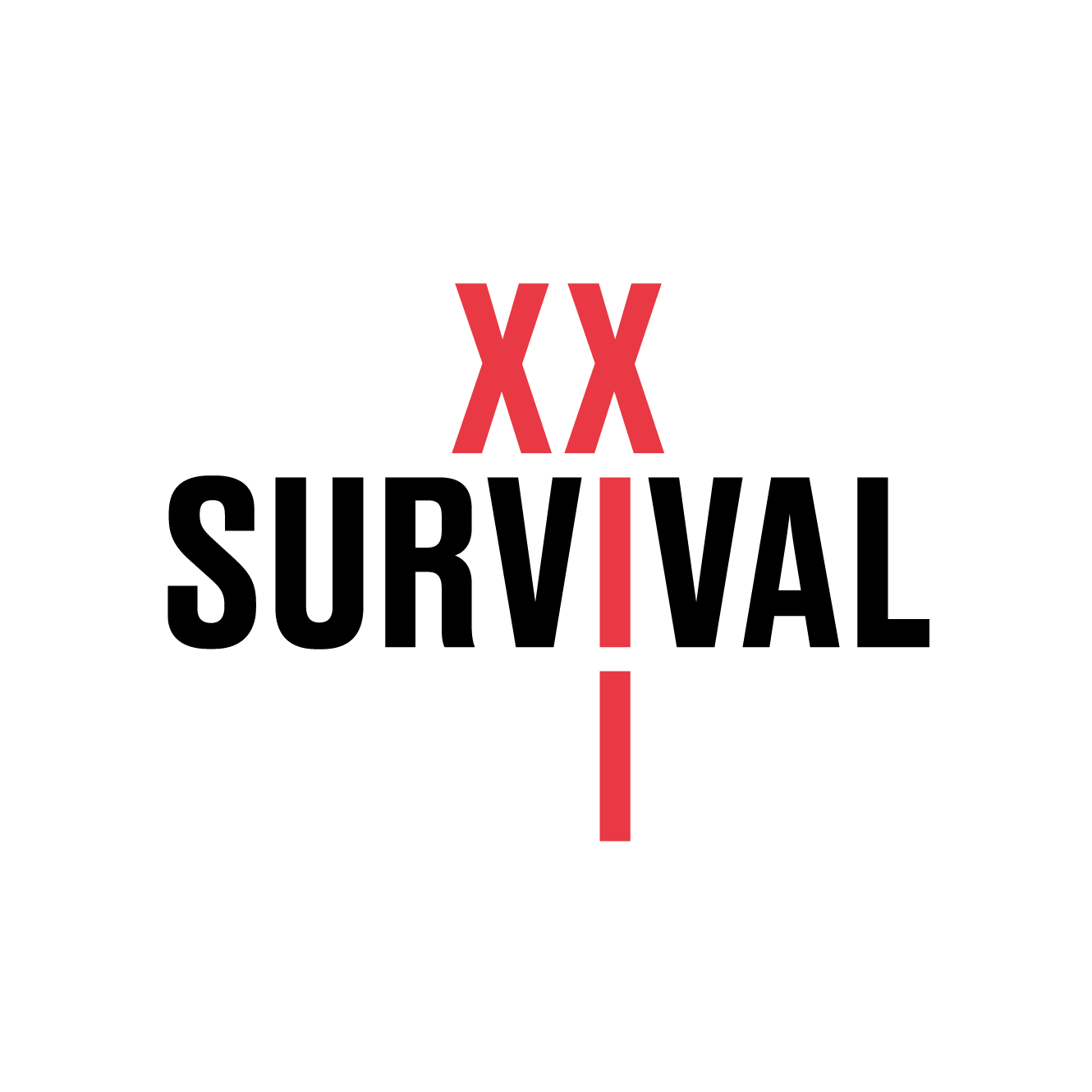SURVIVAL 22
21–25.06.2024
The main theme of this year’s SURVIVAL is Romanticism, in particular the question of what meanings and values derived from the Polish – as well as regional and European – Romantic tradition persist today and how they shape our perception of modernity.
As a trend in Polish art, Romanticism is identified with the struggle for independence and the dream of a sovereign state based on a messianic idea of saving Europe. Throughout Europe, Romanticism accompanied the formation of the concept of the nation – as we understand it today – and in a sense shaped national aesthetics. The Romantic belief in what is invisible, inaccessible to reason and evades scientific knowledge meant that spirits were involved in nation-building processes. Thus, in the Polish tradition, independence turns out to be inseparable from that which is not subject to reason. The title Frenzy and Independence is borrowed from Maria Janion’s book Gorączka romantyczna [Romantic Fever], in which this eminent expert on Romanticism writes:
Romantic fever is fantasy and the experience of the cosmos, it is tragedy and revolution, frenzy and independence, and above all – the discovery of a new wondrousness; it was new, because it turned out that all reality – visible and invisible – is “wondrous”, abounding in unexpected signs and meanings, exploding with “wonders” in even the tiniest events.

One of the most striking features of Romanticism is the spiritual splendour, the emotional surplus, the peculiar excess and intensity that makes us see the world as an impenetrable mystery full of symbols, secret messages and moe-then-human secrets. Irrationalism becomes a virtue and the uncanny – a reality.
The barrenness of the Romantic approach to questions of nation and identity, which focused solely on the vision of patriotism created by the bards, would resonate for centuries to come. This is why the theme of this year’s SURVIVAL concentrates on the critique of Romanticism, which is almost completely ignored in the Polish educational process. The few who dared to criticise Romanticism and the attitudes that emerged from it were accused of patricide in the form of an assault on “the most brilliant era of national creativity.” However, even when this current was still dominant in art and political thought, there were those who accused Romantic heroes of “disregarding knowledge, being guided by feelings in their decisions, worshipping caricatured models from the past and compensating for the shortcomings of political realism in assessing power and resources with dreams.”
What also matters in this context is the impact of Romanticism on the collective worldview of Poles, especially the importance of nationality and the belief in the uniqueness of the Polish nation and its history, which in later years led towards xenophobic and nationalist ideologies. Because of the constantly quoted works of the great bards, with their burden of heroic and messianic myths, Romanticism as the “key tradition” of Polish patriotism still influences the language and consciousness of far-right groups. In this context, a profound critical re-evaluation is needed.

Another important issue is the reading of history through a Romantic version of Poland’s past. One of the most significant examples of this is the creation by Romantic writers of a vision of broadly defined Slavism that finds little support in scientific discoveries. The wall of Romantic myths and legends surrounding the general consciousness is so impermeable that no research-based knowledge of Slavic tribes can penetrate it. The 19th-century interest in the Slavic past, especially in beliefs, remains a phenomenon that still resonates in cultural and even scientific texts.
The search for pre-Christian knowledge and rituals led some Romantics to appreciate folk tradition and ascribe to it a special role in the formation of Polish self-awareness. Importantly, in keeping with the democratisation processes of the 19th century, this belief was connected with the idea of full popular participation in civic life. At the same time, European Romanticism gave rise to a particular form of Orientalism, which in the Polish tradition was characterised by a specific view of the nearest East: Ukraine and Russia. One example is Mickiewicz’s Crimean Sonnets – the first Petrarchan sonnet cycle in the Polish language, published in Moscow in 1826, with a quotation from Goethe. The poet’s rapturous description of his journey to the Crimea was an opportunity to express his longing for his homeland and to define himself in relation to the West. To this day, the Polish view of the East often seems to be based on a similar orientalising optics that demands an occidental reflexivity.

Although Romanticism, with all its ideological weight accumulated by its creators and ideologues, seems unquestionable and untouchable, in recent years there have been attempts to re-read the whole trend, and especially the archetype of the “Romantic hero”, in new contexts, most notably postcolonial or queer ones. The tropes and aesthetics of Romanticism are explored in today’s pop culture, which is replete with references to the Gothic novel and vampirism. Contemporary spiritualism and, more broadly, the search for meaning and significance in areas far removed from scientific cognition also seem to rely on intuition and the heart, in the Romantic fashion. The feminist aspect of 19 th -century spiritualism is important – by assuming the role of medium, women gained not only financial independence but also public voice..
The opposition of sound art to the classical system of music is connected with the programmatic pursuit of inspiration and experience in the Romantic idea. This model still functions today, both within academic circles and in the programmes of musical events. Romanticism also bequeathed the idea of a synthesis of the arts, including Wagner’s Gesamtkunstwerk (total work of art), which is present in many stage productions. The liberation of sound from the musical framework consisted mainly in its conceptualisation and contextualisation, and a move away from the totality of music towards a deep experience of sound. These tools can also be applied to discussions on Romanticism, problematising both its origins and effects, some of which are now considered canonical, e.g. Chopin’s music. Romantic music was, of course, dominated by men; the work of women composers of the period is less well known, showing that they remained in the shadow of famous musicians, with whom they were sometimes linked by blood or love – as was the case with Fanny Mendelssohn Hensel, Alma Mahler, Clara Schumann or, in Poland, Filipina Brzezińska and Maria Szymanowska. History might have taken a different turn if the open forms proposed by, for example, Tekla Bądarzewska or Louise Farrenc gained more prominence – perhaps it would have been free of nationality and historicism, but rooted in spirituality.
This year’s SURVIVAL asks for another possible image of Romanticism on the level of emotions, myths and facts, sometimes in opposition to what is already known, familiar and oft-reproduced. Reflecting on the creations of Romanticism and its long shadow may answer the question of whether it is our – Polish – pride or a failure.
The Brochów housing estate is only 8 kilometres from the Old Town in Wrocław. However, in the minds of many people, it is still considered much more remote and therefore rarely mentioned in travel guides or tourist blogs. Yet in comparison with other suburban developments in Wrocław, Brochów appears to be one of the most interesting, both in terms of its social structure and architecture. The history of Brochów also hides a lot of interesting moments, which are unprecedented in other parts of the city.
For centuries Brochów (German: Brockau) was a typical village near Wrocław. It was first mentioned in 1193 as an endowment of the Augustinian Church of St. Mary Magdalene in Piasek, donated by the legendary magnate Piotr Włost. The settlement survived in this legal form until the secularization of the church property in 1810.
Brochów, like other villages near Wrocław, was an important source of fruit and vegetables for the growing city. To this day many manor houses can be found there. The local climate was so favourable that pineapples and extremely valuable bitter oranges could be grown in the garden of the non-existent capitular palace from the early 18th century.

A turning point in Brochów’s history came with the development of the railroad. In 1896, the largest marshalling yard in Central Europe was opened here. This huge investment, part of the project of expanding the Prussian railroads, changed Brochów forever, but also had a significant impact on the economy of the whole Silesia. Coal from the Upper Silesian mines was transported to the West through the village. A considerable number of workers were needed to operate such a complex infrastructure (still one of the largest in Europe). Due to the influx of people from the countryside arriving to work in the railway industry, the village of Brochów went through a period of intensive urbanisation and transformed into a small town with a working-class character. By 1905, more than 7,000 people lived here.
Soon a development of tenement houses was built here, followed by an estate of single-family houses in the “garden city” style. Brochów also received an eclectic town hall, a primary and secondary school, a post office and a police station. The most unique buildings, however, are those built in their modernist style in the interwar period: a parish church, a fire station and a housing estate for railway workers.
Until 1945, Brochów was a flourishing town with its own infrastructure and two newspapers. In many respects, especially in terms of urban planning and organisation, it was a model workers’ settlement. All the infrastructure was there to compensate the workers for their hard and poorly paid work. Above all, it made Brochów function like a well-oiled machine on which the much larger Wrocław depended. The town was self-sufficient and economically privileged. For this reason, it was not annexed to Wrocław during the great expansion of the city in 1928.
A dark page in the history of Brochów was the Second World War. It is worth noting that railway workers as a professional group largely supported the Nazi government in 1933 and its actions, among other things playing a key role in the plan to exterminate the Jewish community. In the 1940s, Brochów was the site of a railroad labour camp that imprisoned mainly people from the Czech Republic, Poland and Ukraine. In February 1945, the Nazis executed the mayor of Brochów, Bruno Kurzbach (some sources say this happened in front of the town hall).

Brochów emerged from the siege of Festung Breslau relatively unscathed, considering the scale of destruction in the surrounding towns. Soon Polish railway workers began to arrive here (the Brochów railway station was one of the repatriation stations) in order to reactivate the railway junction, which was crucial for the rebuilding of the so-called Recovered Territories. These were people from various regions of the country, as well as from the former eastern borderlands. As was the case in other countries of the so-called Eastern Bloc, the communist government was particularly concerned with the development of heavy industry, including railroads, and the maintenance of railroad infrastructure. However, despite these efforts, the town never regained its former self-sufficiency and lost many connections with Wrocław. Paradoxically, Brochów became a transit desert for several decades, even though it was incorporated into the administrative boundary of Wrocław at the beginning of 1951.
In the 1960s, Roma families from the Bergitka Roma and Polska Roma groups, who had led a nomadic lifestyle until the 1960s, settled here. Brochów continues to have the largest concentration of the Roma community in Wrocław, with rich cultural traditions. Among the Brochów Roma community, musical traditions have always been present, passed down from generation to generation. In 1965, the Bacht Gypsy Song and Dance Ensemble was founded by Franciszek Szoma. A Roma community centre and sports teams also functioned here for many years.
Brochów went through a difficult period in its history after the discontinuation of many railway connections in the 1990s. Today, it is one of the fastest developing urban enclaves in Wrocław.
RULES AND REGULATIONS OF THE OPEN CALL FOR ARTISTIC WORKS TO BE SHOWN DURING SURVIVAL 22 ART REVIEW
(According to point 3.10 of the regulations, the Organizer decides to change the deadline for submitting contest entries. Therefore, the deadline specified in 1.2 and 3.6 of these regulations is changed to March 10, 2024.)
1 – GENERAL PROVISIONS
- SURVIVAL 22 Art Review, hereinafter referred to as the “Review,” is organised by the ART TRANSPARENT Foundation, hereinafter referred to as the “Organiser.”
- The Review will be held from 21 to 25 June 2024 in the Brochów housing estate in Wrocław. It will be preceded by an Open Call for artistic works. Submissions will be accepted from 22 December 2023 to 29 February 2024.
- These Rules and Regulations are binding for the Organiser and Applicants. They regulate the terms and conditions of participating in the Open Call and Review, and the rights and duties of the Organiser and Applicants.
- The Rules and Regulations are available at the Organiser’s seat and on the website www.survival.art.pl.
- The aim of the Open Call is to select artistic works (projects) with the highest artistic value, which shall be closely connected with the subject of the Review.
- Successful Applicants shall win the right to have their works presented during the Review.
2 – Selection of works
- The works of art to be presented during the Review will be selected through the Open Call or by curatorial invitation. After a work has been selected or invited, the concept of displaying it will be agreed upon by the artist in agreement with the curators.
- Qualification for the Review is two-stage: in stage 1, the submissions are evaluated formally; in stage 2, they are assessed according to their artistic value.
- The Application Form is available on the website: https://forms.gle/xLv8KiHMt4VVwEwT8 Submissions will be accepted solely through the Application Form.
- The Application Form shall be completed in accordance with the provided guidelines.
- A visualisation of the proposed project and, optionally, the artist’s CV or portfolio should be attached to the Application Form. The files should be submitted in the jpg, png or pdf format and their size should not exceed 10 MB. The attachments shall be sent in the Application Form by providing a download link. All files must be uploaded via external links, with the materials so uploaded being available at least until the end of the Review.
- Project visualisations may be created using the photographic material posted on www.survival.art.pl (under the SURVIVAL 22 – DOWNLOAD tab).
- Each Applicant (individual artist or a group of artists) can submit maximum three projects.
- The Organiser reserves the right to freely choose the works according to their artistic value and the principles of the Review.
- The Organiser will select the works to be presented during the Review from the submitted projects. The form and range of presentation shall be agreed upon with the Applicant by 30 April 2024.
- The Open Call shall not be entered by members of the Competition Committee or persons who take part in the organisation and preparation of the Open Call.
- The successful Applicants will sign an agreement specifying the individual requirements concerning the production and presentation of the work, the organisation of the Review, the transfer of copyright to the work or granting a licence to it. The basic elements of the agreement are detailed herein.
3 – Open Call rules
- The Organiser appoints the Open Call Coordinators: Paweł Rogowski and Paweł Zaręba, who shall be in charge of ongoing correspondence with the Applicants and conduct organisational work connected with the Open Call.
- All correspondence should be sent in electronic form to the following email address: konkurs@survival.art.pl.
- The submissions will be evaluated by the Competition Committee.
- The Competition Committee consists of the following persons: Michał Bieniek, Daniel Brożek, Małgorzata Miśniakiewicz, Ewa Pluta, Paweł Zaręba, Paweł Rogowski.
- The submissions will be evaluated by the Competition Committee according to the criterion of creative value – proposed solutions, ingenuity, connection with the proposed theme.
- The deadline for sending the submissions is 29 February 2024.
- The deadline for announcing the results of the Open Call is 31 March 2024.
- The works will be presented during the Review – from 21 to 25 June 2024.
- The works shall be disassembled and collected by the Applicants between 26 and 30 June 2024. The Organiser shall not be responsible for works not collected by the aforementioned deadline, and after the deadline the Organiser has the right to freely dispose of the works, including their destruction.
- The Organiser reserves the right to change the deadlines mentioned in points 6-9 above without giving any reason. The Organiser will inform about any possible change on the website www.survival.art.pl.
4 – Production of artistic works selected for the Review
- The works displayed during the Review must be prepared according to the production schedule set by the Organiser.
- The Organiser guarantees to cover the cost of producing the work up to a pre-arranged amount specified in a separate agreement.
- After prior agreement of technological details, the Organiser shall provide the Applicant with technical and organisational assistance with the assembly of the work.
- The return of the works after the Review is subject to a separate arrangement, while maintaining the terms and conditions specified in §3(9).
- In justified cases, the Organiser reserves the right to not produce the work and present it during the Review only in the form of the submission, sketches and documentation
5 – Organisation of the Review
- The Organiser ensures the promotion of the Review and the accompanying events.
- The selected and produced works will be presented from 21 to 25 June 2024 in the Brochów housing estate in Wrocław, in spaces designated by the Organiser.
- The Organiser provides security on the premises of the Review where the works will be displayed, but does not guarantee full protection and does not insure the works or equipment for the duration of the assembly, presentation and disassembly of the works. In particular, the Organiser shall not be held liable for damaging, destroying or stealing the works by third parties.
- The Organiser provides free accommodation, or reimburses the accommodation cost, for Applicants residing further than 70 km from Wrocław, exclusively for the duration of the assembly of the works (maximum 4 nights), exclusively by previous arrangement, in hostels or similar standard accommodation (in 2 person rooms).
- The Organiser will reimburse the Applicants’ travel expenses from the place of residence to Wrocław, up to the amount of train fare in second-class car on the same route.
- In order to take part in the Review, the Applicant shall sign an agreement with the Organiser that specifies the individual conditions for presenting the work, in particular: its type and basic characteristic features, scope and dates of its production, form of financing the production costs and other costs incurred by the Applicant, scope and terms of transferring copyrights in accordance with the provisions of § 6 of these Rules and Regulations.
- During the Review, the Audience Award Competition will be held, whose conditions are specified in separate rules available at www.survival.art.pl 14 days before the commencement of the Review. Each Applicant has the right to decide whether he/she agrees to take part in the Audience Award Competition.
6 – Copyrights
- By sending a submission to the Open Call, each Applicant grants the Organiser a license, without time and territorial restrictions, to present and promote their work as part of the Review, and to include it in the photographic and video materials documenting the Review (including the Digital Archive of the Review). The licensing and detailed rules of using the work, including the license fee, shall be specified in a separate agreement between the Applicant and the Organiser.
- The Applicant shall retain all personal copyrights to the artistic work and property copyrights to the extent not transferred to the Organiser under a separate agreement.
- By submitting an artistic work to the Open Call, the Applicant guarantees that it is and shall remain free of legal defects and assumes all potential formal and legal responsibility connected with third parties’ claims. The Applicant shall be the only party held responsible for any legal defects of the presented works.
- In the event of the presentation of the Applicant’s work after the Review, during other exhibitions, festivals, cultural events etc., the Applicant shall inform in all materials that the work was commissioned and financed by SURVIVAL 21 Art Review and the ART TRANSPARENT Foundation, and inform the Organiser of each public presentation of the work.
7 – Final provisions
- Completing and sending the Application Form is tantamount to accepting these Rules and Regulations.
- The Applicants’ personal data will be processed pursuant to Article 6(1)(a) of the Regulation (EU) 2016/679 of the European Parliament and of the Council of 27 April 2016 on the protection of natural persons with regard to the processing of personal data and on the free movement of such data, and repealing Directive 95/46/EC (General Data Protection Regulation) in order to conduct the Open Call, in particular to manage the participation in the Open Call and to select the Prize, for the period necessary to achieve these objectives. The data will be processed in accordance with the General Data Protection Regulation and the Act of 10 May 2018 on the protection of personal data (Journal of Laws 2018, item 1000).
- The controller of the Applicants’ personal data is the Organiser, i.e. Art Transparent Foundation, ul. Ofiar Oświęcimskich 1/2, 50-069 Wrocław, KRS: 0000247340, NIP: 9151705192, Regon: 020216173, e-mail: fundacja@arttransparent.org
- For the purposes specified in § 7(2) of these Rules and Regulations, the following personal data of the applicants will be processed: name, surname, phone number, e-mail address and home address.
- Providing personal data by the applicants is voluntary, but failure to do so may prevent them from participating in the Open Call and receiving the Prize. The personal data obtained in connection with the conclusion and execution of the agreement are processed only for this purpose, or to determine and assert claims or defend against claims. They may be transferred to other entities, as long as there is a legal basis for their disclosure or when it is required by the legitimate interest of the data controller or a third party.
- The Organiser as the personal data controller may use the assistance of processors entrusted with processing the data on behalf of the Organiser, subject to a separate agreement.
- In connection with the processing of personal data by the Organiser, the Applicant has the right to:
- access their data and receive a copy of them;
- rectify (correct) their data;
- erase their personal data in a situation where data processing is not carried out in order to fulfill the obligation arising from the law or to exercise the legitimate interests of the data controller or a third party;
- demand a restriction of data processing
- object to data processing
- lodge a complaint with the supervisory authority – President of the Personal Data Protection Office (to the address of the President of the Personal Data Protection Office, ul. Stawki 2, 00-193 Warsaw)
22. SURVIVAL Art Review
FRENZY AND INDEPENDENCE
21-25.06.2024
Brochów
housing estate of Wroclaw
Curators: Michał Bieniek, Daniel Brożek, Małgorzata Miśniakiewicz, Ewa Pluta
Organiser: Fundacja Art Transparent / www.arttransparent.org
Survival Art Review id co-financed by the Municipality of Wrocław / www.wroclaw.pl
